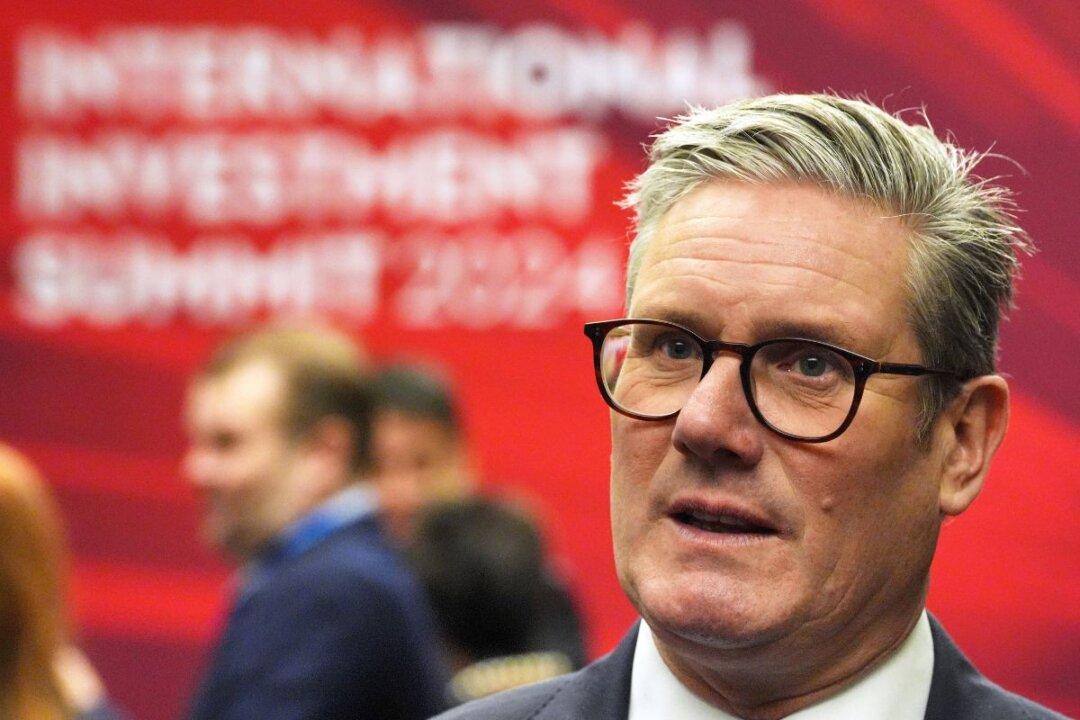Prime Minister Sir Keir Starmer has promised to upgrade the regulatory regime and “rip out the bureaucracy that blocks investment” in a speech to investors at the UK’s first International Investment summit.
“It’s time to upgrade the regulatory regime,” Starmer said, so that it is “fit for the modern age.”
“We will rip out the bureaucracy that blocks investment, we will march through the institutions, and we will make sure that every regulator in this country—especially our economic and competition regulators—takes growth as seriously as this room does,” he added.
Industrial Strategy
The new Labour government is keen to show it is making progress on driving economic growth after hitting the milestone of 100 days in office.Alongside the summit on Monday, the business secretary and chancellor published a green paper on the government’s Industrial Strategy as part of the launch of the new Industrial Strategy Advisory Council.
These are “clean energy” industries, advanced manufacturing, defence, technology, life sciences, financial services, professional and business services, and creative industries.
CEO of Microsoft UK Clare Barclay has been appointed chairwoman of the Industrial Strategy Advisory Council, which will inform the development of the Industrial Strategy, working with unions, businesses, devolved governments, and other stakeholders.
Business and Trade Secretary Jonathan Reynolds MP said the Industrial Strategy will create stability for investors which will “give them the confidence to plan not just for the next year, but for the next 10 years and beyond.”
Budget
Speaking on the industrial strategy, Chancellor of the Exchequer Rachel Reeves said her government is “determined to deliver on Britain’s potential so we can rebuild Britain and make every part of the country better off.”Monday’s investment summit also comes ahead of the chancellor’s budget on Oct. 30, where Reeves had previously said that “tough decisions” will be made, but promised not to raise taxes on working people and said that there would also be no return of austerity.
The IFS also warned that “things could get harder over this parliament,” citing Office for Budget Responsibility projections that the budget could, by autumn 2028, be in deficit by 1.6 percent of national income or £44 billion in today’s terms.
This would reflect growing financial pressures, such as in health care, while the UK sees tax bases for tobacco duties and fuel duties—with the projected increased update of electric over new fossil fuel vehicles—fall.
“In other words, further tax rises or spending cuts could be required before the end of the parliament,” the think tank said.







